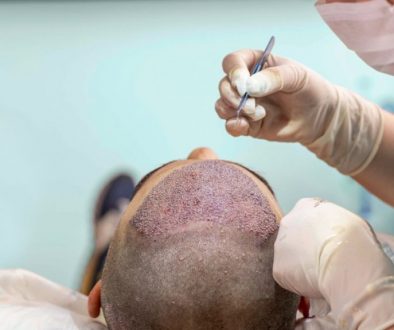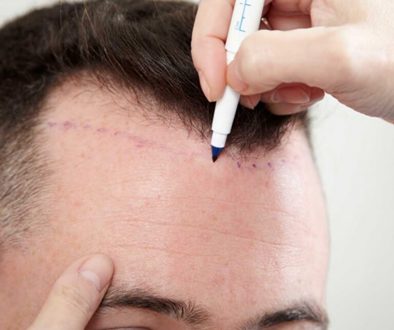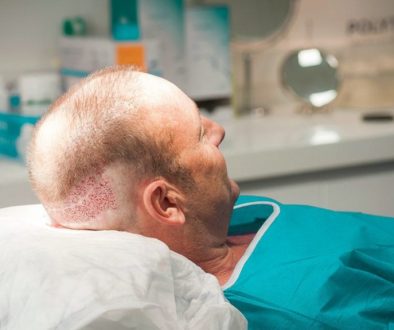Hair Loss 101: Experts Share Basics About Hair Loss and Hair Restoration
 Hair loss, in general, is a very confusing and frustrating phenomenon. What’s more, in many cases hair loss sufferers frequently do not understand the basics of hair loss or fall prey to unsubstantiated rumors and unproven theories. To help combat this problem and share helpful information about hair loss, recommended hair transplant surgeon Dr. Para Mohebi‘s clinic released an article about hair loss basics and seeking quality hair restoration.
Hair loss, in general, is a very confusing and frustrating phenomenon. What’s more, in many cases hair loss sufferers frequently do not understand the basics of hair loss or fall prey to unsubstantiated rumors and unproven theories. To help combat this problem and share helpful information about hair loss, recommended hair transplant surgeon Dr. Para Mohebi‘s clinic released an article about hair loss basics and seeking quality hair restoration.
According to Dr. Mohebi’s clinic:
Hair Restoration – Knowing Basic Facts Regarding Hair Loss
Losing your hair is not an exciting event in life. In fact, for most people it is very distressing. Men and women who suffer hair loss regret this change in their appearance. Many of them resort to desperate measures based on non-expert information. Here are a few facts that may help patients understand hair loss and seek efficient hair restoration. The best thing one can do is address the hair loss concern directly and get a consultation from a trusted hair restoration physician. There are many medical and hereditary factors that may be the contributing to this change. Be prudent and see a medical doctor who specializes in men and women’s hair restoration.
Below are some general facts:
- Our hair is made of a protein called keratin.
- A hair consists in a hair shaft (what we see), a root below the skin, and a follicle from which the hair roots grows.
- The hair’s color pigment, or melanin is produced at the hair bulb which is located at the lower end of the follicle.
- A 50 to 100 hairs loss a day is considered normal. Any amount of hair over that might mean that something is wrong.
- Hair loss is directly connected to stress, sometimes that stress is caused by excessive work, family problems or major illness or surgeries.
- Hair loss can be caused by hormonal problems, and correcting the hormone imbalance may stop the hair loss. Hormones problems can be cause by and overactive or under-active thyroid gland. This can happen with men the same way that with women due to an imbalance of the androgen(male hormones) or estrogen(female hormones)
- Hair loss can be frequent after 3 months of giving birth, this is also a hormone disorder problems; during pregnancy high level of specific hormones usually cause the body to keep the hair that was supposed to fall naturally. So is considered normal that when the hormones acquire the before pregnancy levels, that hair falls and start the natural growth and loss cycle.
- Hair loss is caused by the use of certain medicines or treatments, especially blood thinner medicines (anticoagulants), medicines for gout, chemotherapy (used for cancer treatment), Vitamin A (in large does) as well as birth control pills and antidepressants can contribute to hair loss in some people. Hair loss often stops when the medicine is no longer taken. You should communicate your concerns to your physician and he or she can suggest a change of medicines or treatment that won’t cause you the hair loss.
- Hair loss can be caused by fungal infections of the scalp, and can be treated with anti-fungal medicines.
- Hair loss can be caused by the use of tight pigtails, cornrows, hair rollers and well as by hot oil treatment or chemicals frequently used in permanents (perms). This kind of hair loss is called traction alopecia and can stop when the pulling and the use of chemicals stop.
- One kind of hair loss called alopecia areata is caused by the person’s own immune system. This autoimmune disease starts in small round bald patches on the scalp and can get bigger in some cases. The hair often grows back naturally within the year but those patients might experience that kind of alopecia again.
- A very frequent kind of alopecia commonly called male-pattern is actually called androgenetic alopecia. This might be caused not only by genetic factors but by a combination of many other factors including hormones. This can start from the mid-teen years and is frequent on patients who take steroids.
- If you are experiencing hair loss or you have a genetic factor that might cause your hair loss, see a top hair restoration doctor sooner rather than later.
- Hair loss can be caused by poor nutrition. Anorexic and bulimic people lose their hair because their body doesn’t get the necessary proteins, vitamins and minerals to make the hair grow. Vegetarian persons can also experience some kind of hair loss if they don’t get enough proteins from non-meat resources.
- You can benefit and take good care of your hair by eating balanced, healthy diets.
- As a hair loss treatment some doctors advice to use baby shampoo and no more than one a day.
- Is better to style your hair when dry or damp, if you do it while your hair is wet, it can stretch and easily break.
- If you are about to start chemicals for your hair, like strengtheners or color, you should try first on a small spot on the back to check for allergies and hair loss, then after a few days proceed to the application to your whole hair.
- Avoid the use of chemicals if you have experiencing hair loss.
- Advances in hair restoration are extraordinary over the past five years. Hair transplants are becoming the natural and preferred choice for men and women’s hair restoration.
By utilizing these important basics, hair loss sufferers may better understand progressive baldness and take steps to efficiently and safely restore lost hair!
_____________
Blake – aka Future_HT_Doc
Editorial Assistant and Forum Co-Moderator for the Hair Transplant Network, the Hair Loss Learning Center, the Hair Loss Q&A Blog, and the Hair Restoration Forum
Follow our community on Twitter
Watch hair transplant videos on YouTube
Technorati Tags: Hair loss, hair loss sufferers, hair transplant, hair restoration, hair restoration physician, traction alopecia, androgenetic alopecia



